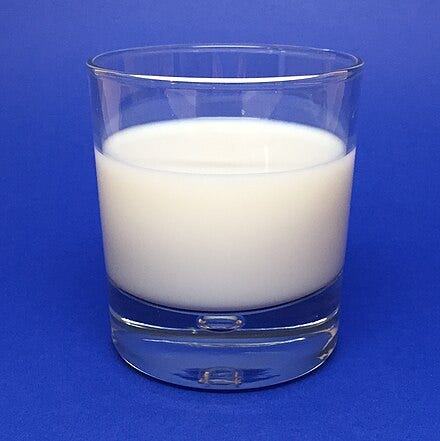By Adam Garrie The Kennedy Beacon
The USDA released a press statement detailing a new mandate requiring the collection of raw milk samples across the U.S. for H5N1 testing. That mandate is slated to stay into effect into the new year, unless the new administration changes it once it comes into office.
According to the release, bovine H5N1, commonly known as bird flu, was detected in milk in March 2024.
Since federal regulators first raised concerns about H5N1 cases in some cows, most of which are on California dairy farms, there have been very few cases of humans contracting the disease and zero fatalities. This fact contradicts the panicked tone of the press release.
The CDC says there have only been 58 cases of H5N1 in humans throughout the country and only 35 of these were related to human interaction with cows. Most symptoms reported were red or dry eyes and mild congestion. Each person recovered full, typically in a few days.
Of a total of 105,805 dairy workers in the US, approximately 0.054818% have ever been diagnosed with N5N1.
There is a broad consensus that while bovine-to-human transmission of the virus is extremely rare, human-to-human transmission is non-existent.
In other words, by embarking on a costly testing regime that could potentially disrupt the supply of milk, the USDA is being hyper cautious.
There is also a less charitable explanation for the USDA’s mass milk testing mandate. Currently, the CDC describes the virus as a “low” public health risk.
According to the USDA, the milk specimens to be tested are raw samples “intended for pasteurization.” The press release states that the new federal mandate “requires the sharing of raw milk samples, upon request, from any entity responsible for a dairy farm, bulk milk transporter, bulk milk transfer station, or dairy processing facility that sends or holds milk intended for pasteurization.” This means that milk supplies intended to be sold raw to retail consumers will not be tested.
This testing mania comes against the backdrop of a growing movement among consumers, nutritionists and scientists to deregulate the retail sale of raw milk.
Many nutritionists have concluded that raw milk is exponentially healthier for human consumption than pasteurized alternatives. This is due to the abundance of vital vitamins and minerals in raw bovine milk. Far from carrying any known risks of contagion, the consumption of raw milk has been shown to strengthen the human immune system.
Raw milk can typically be consumed by people who are otherwise lactose intolerant without experiencing discomfort. This is due to the presence of digestion aiding enzymes in raw milk that are destroyed during pasteurization.
Despite such health benefits, federal regulators, including the USDA, have made it difficult for producers of raw milk to deliver their goods to consumers. Representative Thomas Massie (R-KY) has been a vocal advocate for the deregulation of raw milk retail sales, as has Robert F. Kennedy Jr., President-elect Trump’s nominee to lead the Department of Health and Human Services (HHS).
As the USDA begins raw milk testing around the country, health advocates fear this latest test mandate could discourage long-overdue debates about the federal government’s role in restricting the sale of raw milk and other foods.







States should not have to comply with this at all. They need to see the destruction coming with all of this fake regulation for their fake safety concerns.
The issue with regulations on raw milk is what prompted the Amish to get out and vote. They were negatively impacted by these regulations. I believe Trump and RFKJr will follow through.